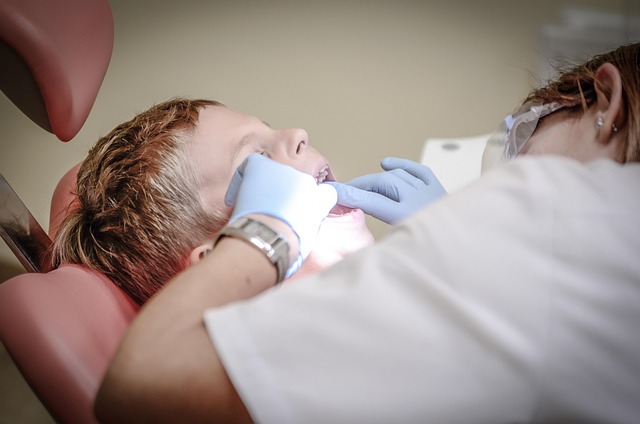Screwless Dental Implants in Ireland: A Modern Rehabilitation Approach
Screwless dental implants are a major innovation in modern dentistry in Ireland. They provide a less invasive, more comfortable alternative to traditional implants. Irish patients can now benefit from advanced, personalized dental rehabilitation solutions.

Dental rehabilitation has evolved significantly with the introduction of screwless implant systems, representing a breakthrough in oral healthcare technology. These innovative devices provide patients with enhanced comfort and improved outcomes compared to traditional screw-retained implants, making them an increasingly popular choice among Irish dental practitioners and patients alike.
What are screwless dental implants?
Screwless dental implants represent a revolutionary approach to tooth replacement that eliminates the need for traditional retention screws. Unlike conventional implants that rely on screws to secure the prosthetic crown to the implant fixture, screwless systems utilize advanced connection mechanisms such as friction-fit designs, magnetic attachments, or specialized locking systems. These implants consist of a titanium post surgically placed into the jawbone, topped with a unique abutment system that securely holds the replacement tooth without requiring screws. The technology has gained recognition in Ireland’s dental community for its ability to provide stable, long-lasting tooth replacement while reducing potential complications associated with screw loosening or fracture.
How do screwless implants work?
The functionality of screwless implants relies on innovative engineering principles that create secure connections through alternative mechanisms. Most systems employ friction-fit technology, where the prosthetic crown is precisely manufactured to create a tight, secure fit onto the implant abutment through controlled pressure and surface tension. Some advanced designs incorporate magnetic components or specialized locking mechanisms that engage when the crown is placed, creating a stable connection that can withstand normal chewing forces. The implant fixture itself integrates with the jawbone through osseointegration, the same biological process used in traditional implants, ensuring a solid foundation. The absence of screws eliminates access holes in the crown, allowing for better aesthetics and potentially improved oral hygiene maintenance.
Advantages of screwless implants
Screwless implant systems offer several compelling advantages over traditional screw-retained options. The elimination of screw access holes results in superior aesthetics, particularly important for front teeth where appearance is crucial. Without screws, there’s no risk of screw loosening, a common complication that can require maintenance visits and potential crown replacement. The seamless crown design often provides better protection against bacterial infiltration, potentially reducing the risk of peri-implantitis. Patients frequently report improved comfort due to the smooth crown surface and absence of potential screw-related pressure points. Additionally, the simplified design can make oral hygiene maintenance easier, as there are fewer crevices where bacteria can accumulate. Irish dental professionals appreciate the reduced chair time for maintenance appointments and the decreased likelihood of mechanical complications.
Durability and longevity
The long-term performance of screwless implants has shown promising results in clinical studies and real-world applications. Without screws that can loosen, break, or wear over time, these systems often demonstrate enhanced mechanical reliability. The simplified connection mechanism reduces the number of components that could potentially fail, contributing to improved longevity. Proper osseointegration of the implant fixture provides the same stable foundation as traditional implants, with success rates comparable to conventional systems when placed by experienced practitioners. However, the long-term data for screwless systems is still developing, as these technologies are relatively newer compared to traditional screw-retained implants. Irish patients can expect these implants to last many years with proper care, though individual results may vary based on factors such as oral hygiene, bone quality, and overall health.
Costs and treatment options in Ireland
The investment in screwless implant treatment varies significantly across Ireland, with several factors influencing the total cost. Leading dental practices in Dublin, Cork, and other major cities typically charge between €2,500 and €4,500 per implant, including the fixture, abutment, and crown. The specialized nature of screwless technology often commands a premium over traditional implants, with costs potentially 15-25% higher than conventional systems.
| Provider Type | Location | Cost Range (per implant) |
|---|---|---|
| Specialist Clinics | Dublin/Cork | €3,500 - €4,500 |
| General Practices | Regional Towns | €2,500 - €3,500 |
| Dental Hospitals | Various | €2,000 - €3,000 |
Prices, rates, or cost estimates mentioned in this article are based on the latest available information but may change over time. Independent research is advised before making financial decisions.
Treatment planning typically involves comprehensive examination, 3D imaging, and consultation fees ranging from €150 to €300. Some practices offer payment plans or financing options to make treatment more accessible. The HSE does not typically cover implant procedures, though private health insurance may provide partial coverage depending on the policy.
Screwless dental implants represent an exciting advancement in dental rehabilitation technology, offering Irish patients enhanced aesthetics, reduced maintenance requirements, and improved long-term reliability. While the initial investment may be higher than traditional options, the potential benefits in terms of comfort, appearance, and reduced complications make them an attractive choice for suitable candidates. As with any dental procedure, thorough consultation with a qualified implant specialist is essential to determine the most appropriate treatment approach for individual circumstances.
This article is for informational purposes only and should not be considered medical advice. Please consult a qualified healthcare professional for personalized guidance and treatment.




